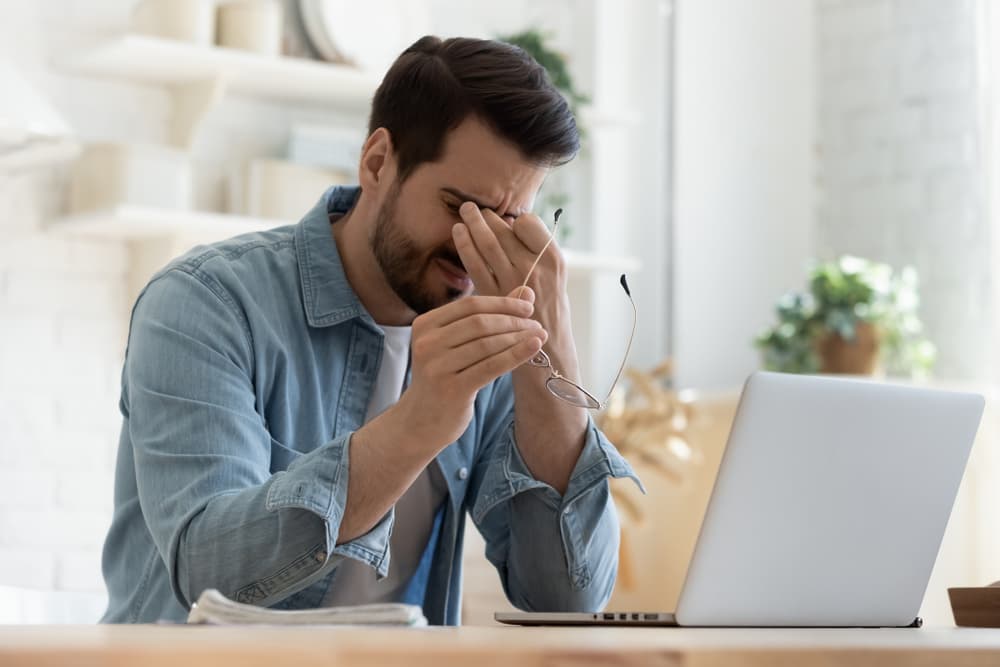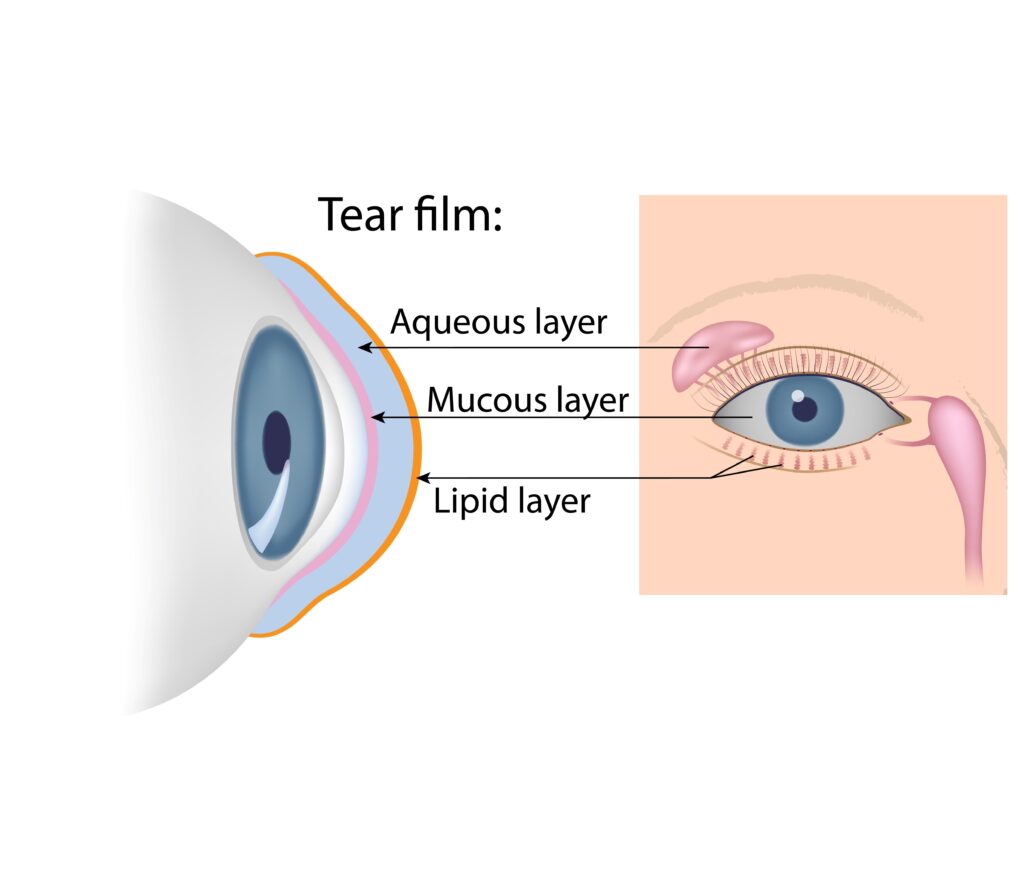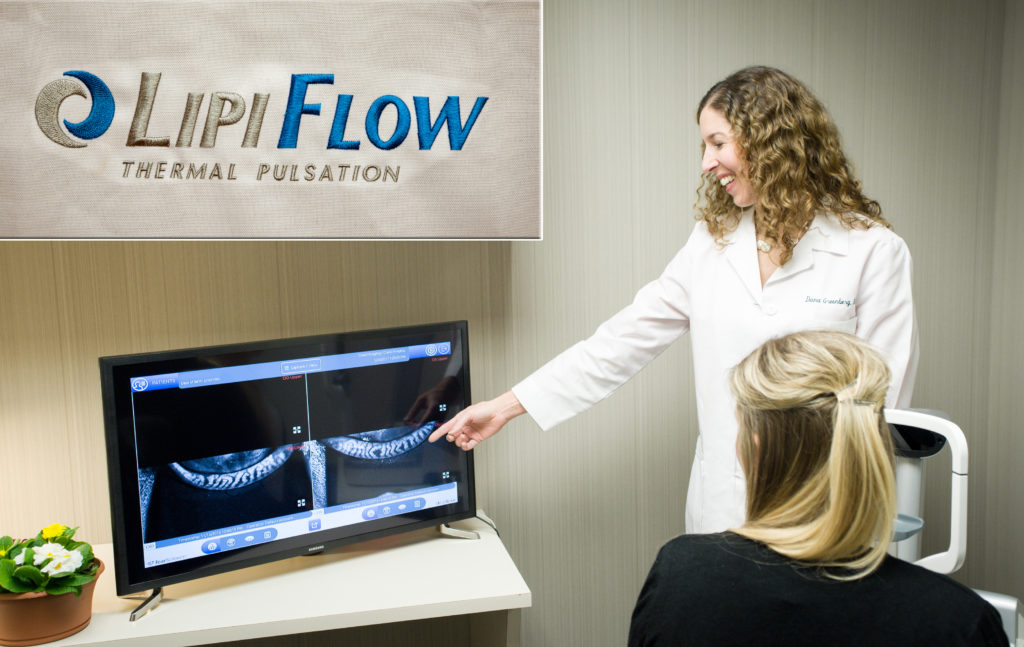What is Dry Eye Syndrome?

Dry eye related discomfort is one of the most common eye complaints we hear about at Greenberg Laser Eye Center. The symptoms of dry eyes vary depending on the individual case, however, patients that suffer from dry eyes usually experience a number of the following symptoms:
- Dryness
- Redness
- Scratchiness
- Blurred vision
- Foreign body sensation
- Burning sensation
- Sandy/gritty sensation
- Excessive tearing
Dry Eye and MGD? (with subtitles) from TearScience on Vimeo.

Dry eye syndrome, often referred to as keratitis sicca or keratoconjunctivitis sicca, is caused by insufficient and/or poor-quality tears. There are three components of a healthy tear film: the mucous layer produced on the surface of the eye, the aqueous layer produced by our lacrimal glands, and the lipid layer produced by they meibomian glands in our eyelids. When one of the parts of this mixture becomes unbalanced, dry eye syndrome can occur. Meibomian gland dysfunction causing evaporative dry eye is the most common cause. There are numerous reasons as to why these glands may not be doing their part
Many over-the-counter and prescription medications can adversely affect your dry eye. Women, especially post-menopausal women, are more at risk for dry eye disease, as are contact lens wearers and people using computers for long hours. Increasing household or office space humidity can lessen the evaporation of tears. Also by taking frequent breaks while doing computer work to fully close your eyes, you can improve your tear film. Venting air conditioners and heater away from your eyes can also improve your symptoms.
Dry Eye Treatment Options
LipiFlow® Treatment for Dry Eye

Greenberg Laser Eye Center is proud to be among the first in Michigan to offer LipiFlow, a breakthrough treatment for dry eye sufferers! If you are experiencing eye dryness, irritation, light sensitivity, vision fluctuations, contact lens intolerance, and eye fatigue, you may be a candidate for a new treatment called LipiFlow.
Of the millions of people in the U.S. that suffer from dry eye, a majority have an evaporative dry eye, which stems from a deficiency in the oily lipid layer of the eye’s tear film. The lipid deficiency is due to blockages in the meibomian glands located in the eyelids. The lipids serve to protect the water (aqueous) layer of tears so that the tears do not evaporate too quickly.
Treat the Cause of Evaporative Dry Eye

LipiFlow® is intended for the application of localized heat and pressure to the eyelids in adult patients with Meibomian Gland Dysfunction (MGD), also known as evaporative dry eye or lipid deficient dry eye.
Unlike traditional treatments (e.g., warm compresses, wetting drops and ointments) that address dry eye symptoms, LipiFlow treats the root cause, the obstructed meibomian glands. If left untreated, dry eye can lead to further gland deterioration and additional problems. The goal of unblocking the glands is to allow them to resume their natural production of lipids required for a healthy tear film. LipiFlow treatments can only be provided by a licensed physician and Greenberg Laser Eye is proud to be providing this advanced service.
How LipiFlow Works:
- LipiFlow uses a disposable eyepiece to apply controlled heat to the inner eyelids and intermittent gentle pressure to the outer eyelid.
- LipiFlow facilitates the release of lipids from the blocked meibomian glands allowing the natural flow of lipids to resume.
- LipiFlow is an in-office procedure that takes approximately 20 minutes. Both eyes can be treated simultaneously.
What to Expect from LipiFlow:
In a controlled clinical trial, a majority of patients treated with LipiFlow reported an improvement in overall dry eye symptoms at 4 weeks post-treatment.
If dry eye is hindering you from the activities you love, we are here to help. Please contact us to schedule an appointment for a dry eye assessment.
Dry Eye FAQs
What are the two main causes of dry eyes?
The two main causes of dry eyes are insufficient tear production and increased tear evaporation.
What is the best treatment for severe dry eyes?
The best treatment for severe dry eyes depends on the underlying cause but may include prescription eye drops, lifestyle modifications, and in some cases, procedures such as punctal plugs or meibomian gland treatments. Consultation with an eye care specialist, such as Dr. Dana Greenberg, is essential for personalized recommendations.
What deficiency causes dry eye?
A deficiency in the oil layer of our tears causes increased evaporation and thus dry eye. This can be due to factors such as age, diet, hormonal changes, lifestyle habits, and environmental conditions.
What is the last resort for dry eyes?
In severe cases of dry eyes that do not respond to other treatments, surgical options may be considered as a last resort.

